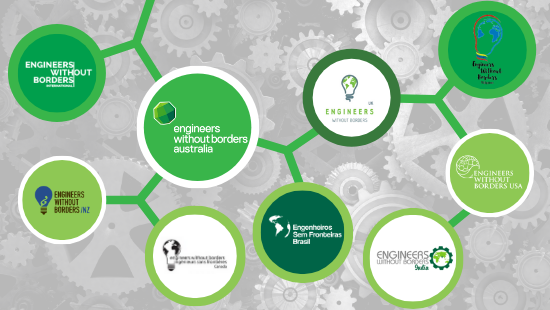Our work in Vanuatu is delivered through an ongoing peer partnership with EWB New Zealand, which commenced over ten years ago.
EWB Australia and EWB NZ work together strategically – coordinating initiatives jointly as well as alongside each other – across a range of engineering projects and education programs, supported through funding from both the Australian government and the New Zealand government.
EWBA supported EWBNZ during the close-out of the Rainwater Harvesting (RWH) System project, in Wawan communities on Ambrym island, in Wawan communities, which had the aim to develop a disaster and climate change resilient technology in this rural area. The project led to the construction of two 50m2 standalone rainwater harvesting shelters, as well as making improvements to rainwater harvesting systems in 11 villages. EWBNZ had been working in the North East Ambrym, Vanuatu for about three years with the Wawan Council to improve water supply, working in collaboration with the Department of Water Resources at the National and Provincial levels. EWBA and EWBNZ jointly carried a final site visit to complete the construction of the RWH structures, which required some additional structural engineering components and a distribution pipeline to several tap stands to serve three different villages to be implemented.
EWB NZ and EWBA co-facilitated the placement of the advisory role of Vanuatu’s Country Manager, Stephanie Hamel, followed by the placement of a volunteer environmental engineer, Daniel Pires, within Vanuatu’s Ministry of Health. Both helped to finalise and implement the Vanuatu National Sanitation Guidelines and Standards. Working in a capacity development role, Stephanie and Daniel prepared policy documents, developed design criteria, determined standard best practice designs, and coordinated training for provincial and local community health workers.
Another key focus of the partnership is to develop a diverse, skilled and accountable group of engineers, in which EWB NZ takes the lead. Strengthening the network of engineers, particularly for women, is planned through a range of education and training initiatives, including an online graduate’s course, training of EWBs ‘Technology Development Approach’ based with principles, and technical knowledge to support the community Drinking Water Safety & Security Plan (DWSSP) as well as hydrogeological support. If an additional funding source is confirmed, the Vanuatu program will include the support of the revival of a professional organisation, the Vanuatu Engineering Association.
EWB’s Vanuatu Program is supported by the Australian NGO Cooperation Program (ANCP), funded by the Australian Government, as well as the New Zealand Aid Programme (MFAT).
——-
These are just a few of the 60-plus EWB organisations partnering with communities in their own and neighbouring countries. Together they are member groups of Engineers Without Borders International, partnering with disadvantaged communities to improve quality of life through education and implementation of sustainable engineering projects.


